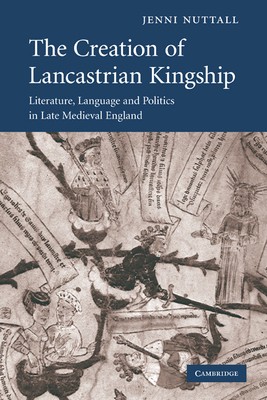
- We will send in 10–14 business days.
- Author: Jenni Nuttall
- Publisher: Cambridge University Press
- ISBN-10: 0521175488
- ISBN-13: 9780521175487
- Format: 15.2 x 22.9 x 1.2 cm, minkšti viršeliai
- Language: English
- SAVE -10% with code: EXTRA
Reviews
Description
The arguments used to justify the deposition of Richard II in 1399 created new forms of political discussion which developed alongside new expectations of kingship itself and which shaped political action and debate for centuries to come. This interdisciplinary study analyses the political language and literature of the early Lancastrian period, particularly the reigns of Henry IV (1399-1413) and Henry V (1413-22). Lancastrian authors such as Thomas Hoccleve and the authors of the anonymous works Richard the Redeless, Mum and the Sothsegger and Crowned King made creative use of languages and idioms which were in the process of escaping from the control of their royal masters. In a study that has far-reaching implications for both literary and political history, Jenni Nuttall presents a fresh understanding of how political language functions in the late medieval period.
EXTRA 10 % discount with code: EXTRA
The promotion ends in 23d.10:19:16
The discount code is valid when purchasing from 10 €. Discounts do not stack.
- Author: Jenni Nuttall
- Publisher: Cambridge University Press
- ISBN-10: 0521175488
- ISBN-13: 9780521175487
- Format: 15.2 x 22.9 x 1.2 cm, minkšti viršeliai
- Language: English English
The arguments used to justify the deposition of Richard II in 1399 created new forms of political discussion which developed alongside new expectations of kingship itself and which shaped political action and debate for centuries to come. This interdisciplinary study analyses the political language and literature of the early Lancastrian period, particularly the reigns of Henry IV (1399-1413) and Henry V (1413-22). Lancastrian authors such as Thomas Hoccleve and the authors of the anonymous works Richard the Redeless, Mum and the Sothsegger and Crowned King made creative use of languages and idioms which were in the process of escaping from the control of their royal masters. In a study that has far-reaching implications for both literary and political history, Jenni Nuttall presents a fresh understanding of how political language functions in the late medieval period.


Reviews